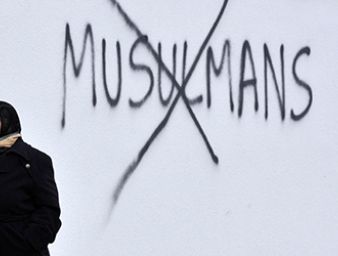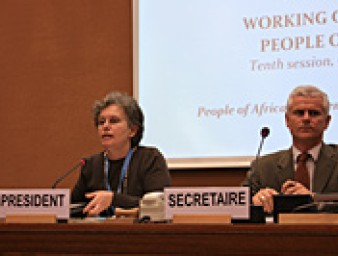Combatting racist messages in the virtual world
21 December 2012

It is estimated that 2.4 billion of the 7 billion people in the world are currently using the Internet, according to a 2011 report from the International Telecommunication Union (ITU). This has made the Internet a leading platform for the way people receive and disseminate information. Information may be accessed or sent instantly, anonymously, and anywhere.
While it is undeniable that the Internet is a positive tool, it can be also used by extremist groups and individuals as a virtual battleground to spread messages of racism and hate, as highlighted by the UN Human Rights Office Special Rapporteur on Racism, Mutuma Ruteere, in his report on Racism and the Internet presented before the 67th session of the UN General Assembly.
As Internet technology has developed, extremist hate sites are continuing to increase in size and technological sophistication. These groups use the Internet for several purposes such as to provoke racial violence and abuse against specific groups or individuals; as a recruitment tool to attract new members; and for intimidation. “It is also of great concern that open calls for violence against individual anti-racism activists are placed on neo-Nazi websites to intimidate, exert pressure or stop social or political actions or activities directed against extremist groups,” says Ruteere.
It is difficult to enforce laws and regulation to inappropriate or illegal content on the Internet because States have different laws to approach this type of content. Ruteere also considers that any measures taken by States to resolve this issue should not restrict the right to freedom of expression. “Any restrictions, control and censorship of the content disseminated via the Internet should be done on a clearly defined legal basis and in a manner that is necessary, proportionate and compatible with States’ obligations under international human rights law,” says Ruteere.
The report includes several recommendations on decreasing the influence of extremist groups on the Internet, which involve using the Internet as a tool to fight back. According to Ruteere, States should make the Internet more available and affordable. Lack of access to the Internet leaves many victims of racial discrimination without the opportunity to defend themselves or challenge racist ideas in the virtual world. In addition, there should be a push for the dissemination of local content to the “global network.” This would contribute to greater understanding, tolerance and respect for diversity and reduce “misperceptions that feed racist and xenophobic expressions.”
Educational programs in human rights are also essential for young people, as are enhanced efforts to identify, investigate and register Internet-related hate crimes, says Ruteere. An additional way to try to eliminate racism on the Internet is “a comprehensive and cohesive approach developed through dialogue and consultation amongst different actors including governments, civil society organisations, Internet service providers and the private sector in general.”
21 December 2012

VIEW THIS PAGE IN:



